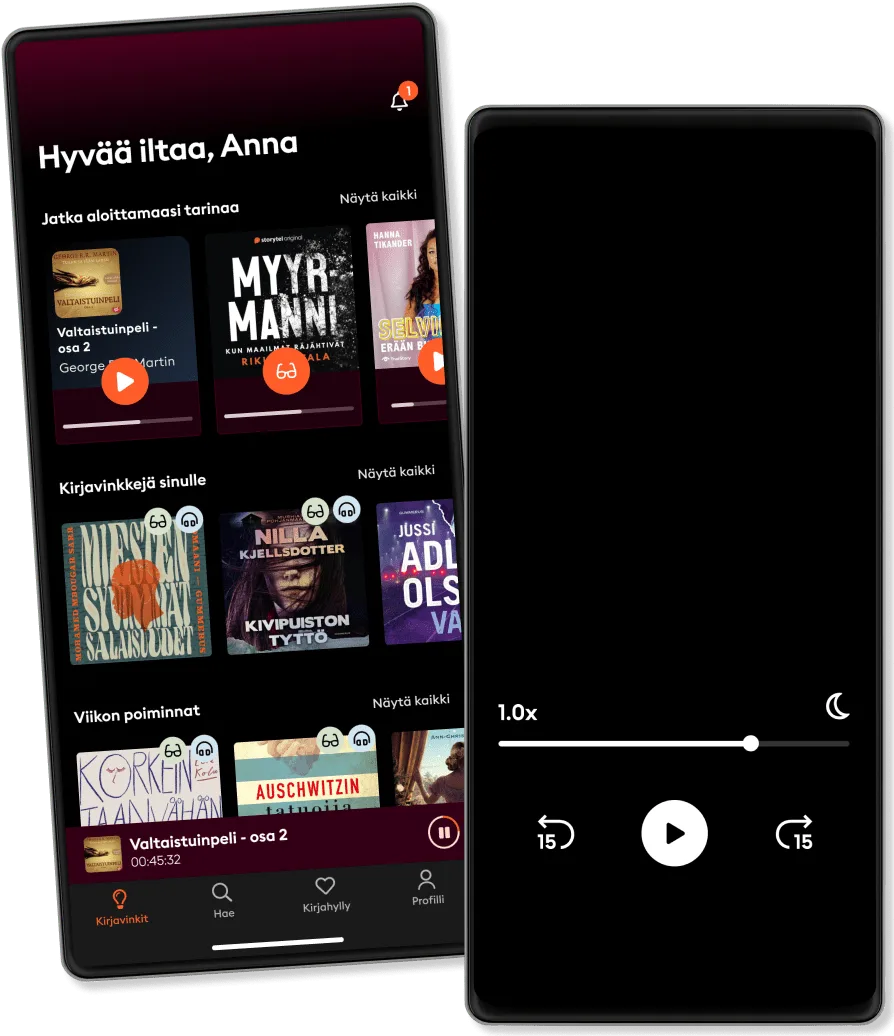Andrei Tarkovsky
- Kirjailija
- Julkaisija
- Kielet
- Englanti
- Formaatti
- Kategoria
Tietokirjallisuus
Andrei Tarkovsky is the most celebrated Russian filmmaker since Eisenstein, and one of the most important directors to have emerged during the 1960s and 70s. Although he made only seven features, each one was a major landmark in cinema, the most well-known of them being the mediaeval epic Andrei Rublev - widely regarded as one of the greatest films of all time - and the autobiographical Mirror, set during the Russia of Stalin's purges in the 1930s and the years of stagnation under Brezhnev. Both films landed Tarkovsky in considerable trouble with the authorities, and he gained a reputation for being a tortured - and ultimately martyred - filmmaker. Despite the harshness of the conditions under which he worked, Tarkovsky built up a remarkable body of work. He burst upon the international scene in 1962 with his debut feature Ivan's Childhood, which won the Golden Lion at Venice and immediately established him as a major filmmaker. During the 1970s, he made two classic ventures into science-fiction, Solaris, regarded at the time as being the Soviet reply to Kubrick's 2001: A Space Odyssey and later remade by Steven Soderbergh, and Stalker, which was thought to have predicted the Chernobyl disaster. Harassed at home, Tarkovsky went into exile and made his last two films in the West, where he also published his classic work of film and artistic theory, Sculpting in Time. Since his death in Paris in 1986, his reputation continued - and continues - to grow. Sean Martin considers the whole of Tarkovsky's oeuvre, from the classic student film The Steamroller and the Violin, across the full-length films, to the later stage works and Tarkovsky's writings, paintings and photographs. Martin also seeks to demystify Tarkovsky as a 'difficult' director, whilst also celebrating his radical aesthetic of long takes and tracking shots, which Tarkovsky was to dub 'imprinted' or 'sculpted' time, and to make a case for Tarkovsky's position not just as an important filmmaker, but also as an artist who speaks directly about the most important spiritual issues of our time.
© 2011 Kamera Books (E-kirja): 9781842434406
Julkaisupäivä
E-kirja: 25. toukokuuta 2011
Saattaisit pitää myös näistä
- Race Rebels: Culture, Politics, and the Black Working Class Robin DG Kelley
- Wilhelm Tell Friedrich Schiller
- Studies in the Psychology of Sex: Volume 2: Sexual Inversion - Homosexuality Havelock Ellis
- A Peculiar Kind of Immigrant's Son Sergio Troncoso
- The Blacksmith's Daughter Selim Özdoğan
- The Thesmophoriazusae Aristophanes
- Heart Earth Ivan Doig
- Poems of the Past & Present: “Beauty lay not in the thing, but in what the thing symbolized” Thomas Hardy
- The Magnificent Ambersons Booth Tarkington
- The Revolt of the Angels Anatole France
- Niko: Kaikki mitä en ole kertonut Mari Koppinen
- JHT – Missio vai mielenrauha Oskari Saari, Jare Henrik Tiihonen
- Vapaus Inari Fernández
- Kaikki nuo valheet Sophie Stava
- Tinna Satu Rämö
- Petetty Max Seeck
- Talven soturit Olivier Norek
- Erikoisjoukoissa – Janne Lehtosen tarina Kati Pukki, Janne Lehtonen
- Alec Arttu Tuominen
- Et ole enää isäni: Gisèle Pelicot’n tyttären tarina Caroline Darian
- Salaisuuksien salaisuus Dan Brown
- Riley Thorn ja murha naapurissa Lucy Score
- Huomenna kerron kaiken Juha Itkonen
- Horros Helena Immonen
- Poikaystävä Freida McFadden
Valitse tilausmalli
Yli miljoona tarinaa
Suosituksia juuri sinulle
Uusia Storytel Original + muita eksklusiivisia sisältöjä kuukausittain
Turvallinen Kids Mode
Ei sitoutumisaikaa
Premium
Sinulle joka kuuntelet ja luet usein.
19.99 € /kuukausi
Ei sitoutumisaikaa
Standard
Sinulle joka kuuntelet säännöllisesti.
16.99 € /kuukausi
Ei sitoutumisaikaa
Flex
Sinulle joka kuuntelet vähemmän.
9.99 € /kuukausi
Säästä käyttämättömät tunnit, max 20h
Ei sitoutumisaikaa
Unlimited
Sinulle joka haluat rajattomasti tarinoita.
29.99 € /kuukausi
Ei sitoutumisaikaa
Family
Kun haluat jakaa tarinoita perheen kanssa.
Alkaen 26.99 € /kuukausi
Ei sitoutumisaikaa
26.99 € /kuukausi
